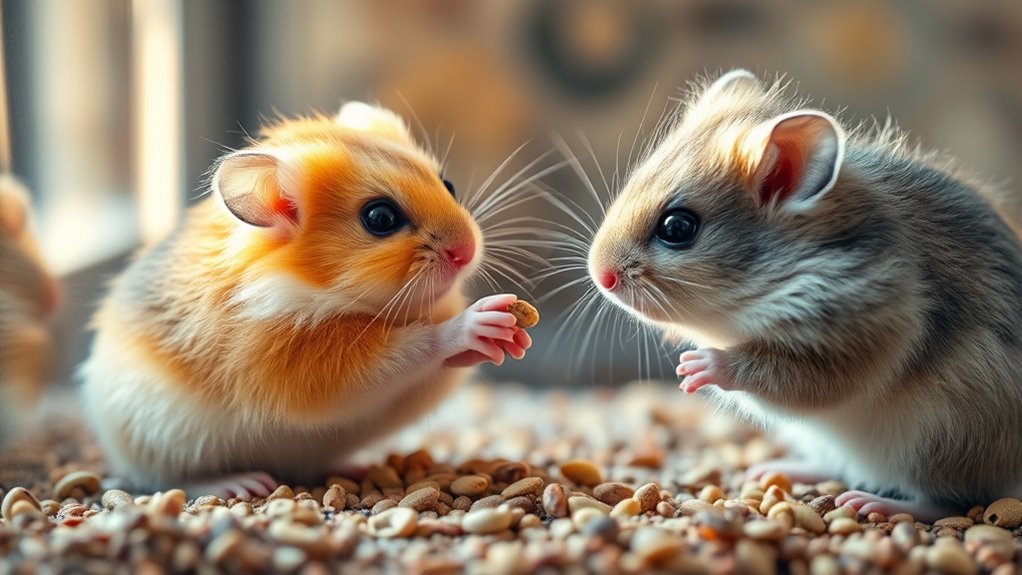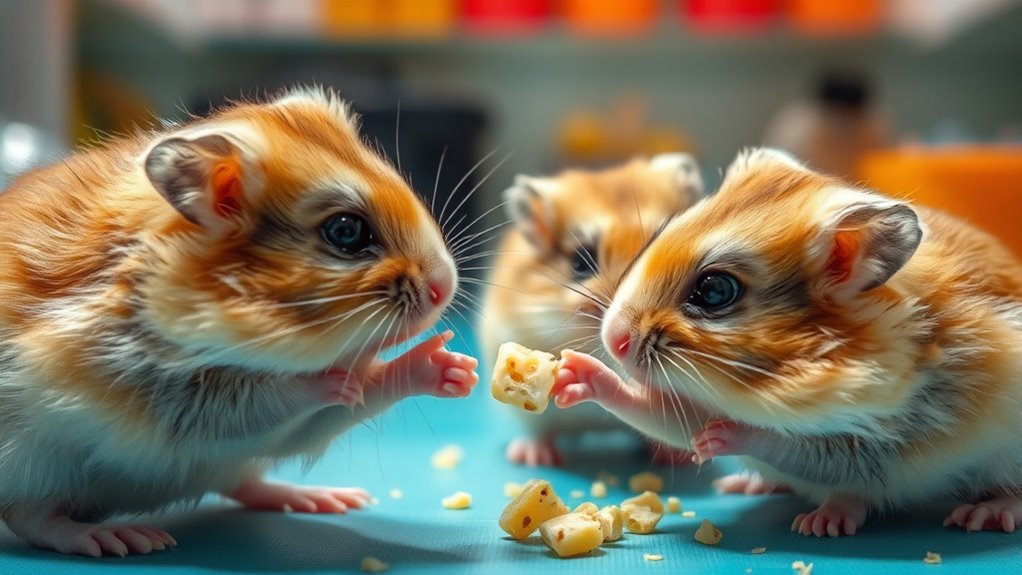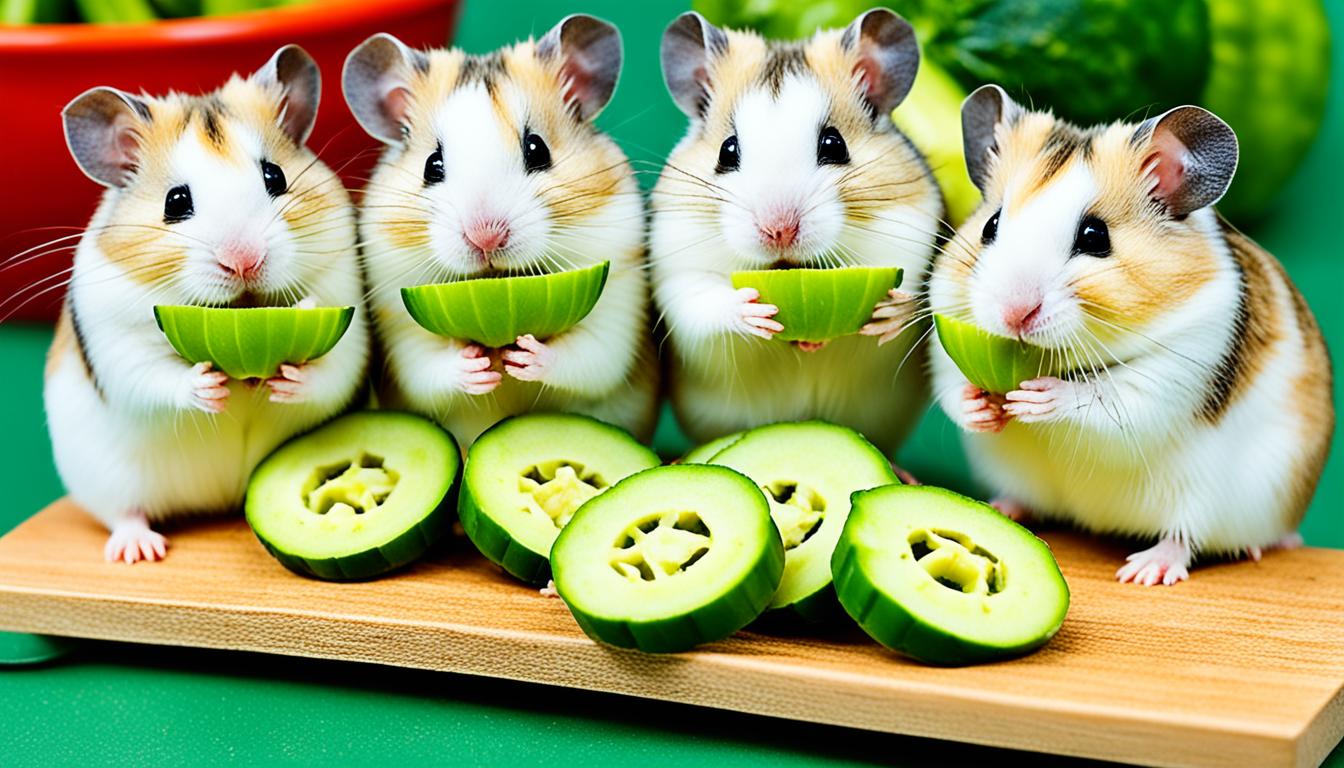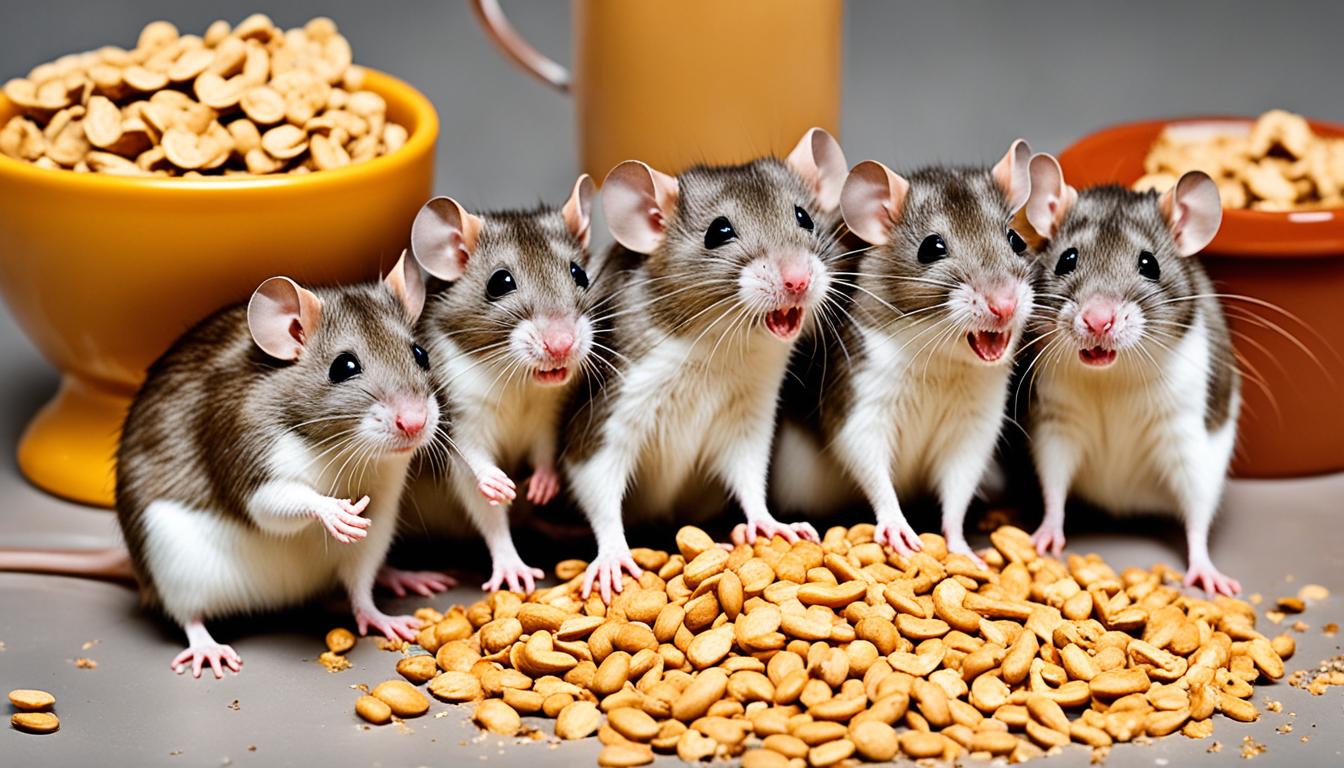Research shows that hamsters sometimes share food even with strangers, revealing unexpected social awareness. Instead of guarding their food fiercely, they demonstrate acts of altruism towards both cage mates and unfamiliar hamsters. This behavior suggests they recognize others’ needs and may act out of social consideration. Their actions help build trust and group cohesion, highlighting complex social dynamics in these tiny animals. Keep exploring to discover more surprising behaviors of hamsters and what they tell us about animal social lives.
Key Takeaways
- Hamsters have been observed sharing food with both cage mates and unfamiliar strangers, indicating altruistic tendencies.
- These behaviors suggest hamsters recognize others’ needs and act to help without immediate personal gain.
- The sharing behavior demonstrates complex social awareness and potential emotional bonds beyond self-interest.
- Such altruism may have evolutionary benefits, promoting group survival and social cohesion among hamsters.
- The study highlights that small rodents like hamsters can exhibit nuanced social interactions and empathy.

Have you ever wondered why hamsters sometimes share their food? It might seem surprising, given that many animals are known for guarding their resources fiercely. But recent studies suggest that hamsters display social behavior that includes acts of altruistic tendencies, even toward strangers. This challenges the common perception that small rodents are entirely self-interested when it comes to their survival needs. Instead, they appear capable of complex social interactions, which include sharing food without immediate personal gain.
When you observe hamsters in a controlled environment, you notice they often prioritize their own needs. However, there are moments when they also show a willingness to help others. For example, if a hamster sees a cage mate or even an unfamiliar hamster in distress or lacking food, it might share its own stash. This behavior points to a level of social awareness and empathy that isn’t just instinctive but indicates a form of altruism. It suggests that hamsters are capable of recognizing others’ needs and acting on them, even without direct benefits to themselves. Such actions may stem from innate social tendencies or learned behaviors that promote group survival.
Scientists believe that this altruism might have evolutionary roots. By sharing food, hamsters could increase the overall chances of survival for their social group, which in turn benefits their own genetic continuation. This social behavior might also be a way to establish trust and social hierarchies that help reduce conflicts in their environment. It’s fascinating to see how these tiny animals exhibit such complex interactions, revealing that their social behavior is more nuanced than previously thought. Additionally, these acts of sharing could be influenced by their capacity for emotional bonds, which can impact their social interactions and cooperation.
Frequently Asked Questions
Do Hamsters Recognize Individual Strangers or Just Respond Generally?
You wonder if hamsters recognize individual strangers or just respond generally. Research suggests hamsters can perform individual recognition, meaning they differentiate between specific strangers rather than reacting to all as the same. This stranger differentiation helps them decide whether to trust or ignore someone new. So, when you observe hamsters sharing food, it’s likely they recognize particular individuals, showing a level of social awareness rather than a simple, all-encompassing response.
Is Hamster Altruism Affected by Age or Social Hierarchy?
You might think age influence and social hierarchy don’t matter, but they actually do. In hamsters, older ones tend to be less altruistic, perhaps showing a hint of wisdom or fatigue. Meanwhile, social hierarchy can influence who shares food—dominant hamsters might be less generous, asserting control. So, yes, age and social hierarchy shape hamster altruism, revealing surprising complexities in these tiny social actors.
Could This Behavior Be Influenced by Environmental Factors or Stress?
You might wonder if environmental stress or habitat influence affect hamster altruism. Stress from a harsh environment could make hamsters less willing to share food, while a supportive habitat might encourage sharing behaviors. Changes in surroundings, like limited resources or disturbances, can impact their social interactions. Overall, environmental factors and stress levels likely play a significant role in shaping whether hamsters exhibit altruistic behaviors, including sharing food with strangers.
How Does This Altruistic Behavior Compare to Other Small Mammals?
You might wonder how this altruistic behavior compares to other small mammals. You should know that neurobiological mechanisms, like specific brain pathways, influence such actions. These behaviors likely offer evolutionary advantages, such as increased survival chances through cooperation. While some small mammals share food or help each other, hamsters’ spontaneous sharing suggests a complex mix of biology and environment, setting them apart from other species with less pronounced altruism.
What Implications Does This Have for Understanding Animal Empathy?
You might find it fascinating that hamsters share food with strangers, suggesting a form of emotional recognition. This behavior hints at the role of social bonding and possibly empathy in small mammals. It challenges the idea that such animals lack social complexity, implying they may understand and respond to others’ needs. Recognizing these behaviors deepens our understanding of animal empathy, showing that even tiny creatures can exhibit altruism driven by social and emotional connections.
Conclusion
So, next time you see a stranger sharing, remember that even hamsters seem to demonstrate altruism. While some believe animals act purely on instinct, recent studies suggest they might genuinely care about others. It’s fascinating to think that kindness could be a natural trait, even in tiny creatures like hamsters. Maybe, just maybe, altruism isn’t just human—it’s a trait we all share, waiting to be uncovered in surprising ways.










